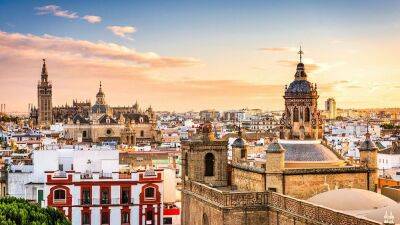Spain entry rules: COVID tests, vaccination rules and masks explained in full
Spain has extended its COVID entry rules for another month, meaning unvaccinated tourists from outside the EU are still unable to visit.
Saturday's announcement that restrictions are staying in place until at least 15 June will have dashed some holidaymakers' hopes.
With its sunny beaches, rich architectural heritage and delicious food, there are plenty of reasons why the Mediterranean nation was the world’s second-most visited country pre-pandemic. And, of course, the long-running favourite of British holidaymakers.
But as the biggest tourism market for Spain, Brits are particularly impacted by the continued ban on non-jabbed people.
Without a full course of vaccination, travellers over the age of 18 can only enter Spain by showing proof that they have recovered from COVID in the six months before their trip.
It is one of Spain's strictest remaining measures after face masks were dropped last month, 700 days since they were first made mandatory to limit the spread of the deadly virus.
As the world adjusts to international travel in the continuing age of COVID, the Spanish tourism sector is expected to reach nearly 90 per cent of its 2019 size.
So if you’re one of the many tourists eager to book a 2022 trip to Spain, here’s what you need to know.
Tourists from within the EU only need to show proof of vaccination or a negative test through the EU Digital COVID Certificate (EUDCC) or another valid document.
If you don’t have the Certificate (or another EU equivalent) you can fill in Spain’s Health Control Form with these details, receiving a QR code to get through the airports.
Either a PCR or rapid antigen test - taken within 72 or 48 hours before arrival, respectively - are accepted.
Previously, there were extra measures for





